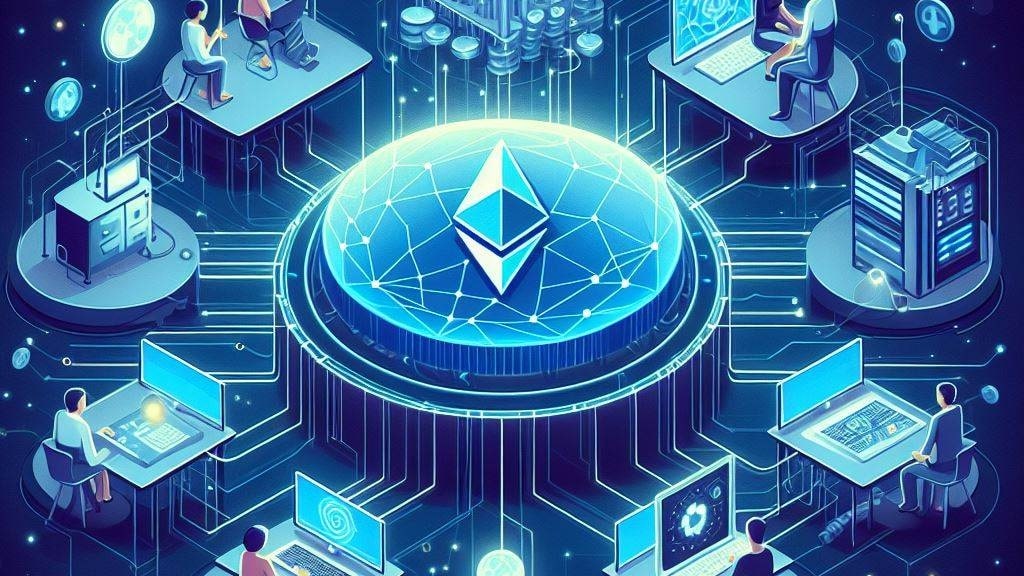
In the intricate landscape of cryptocurrency, Remote Procedure Call (RPC) nodes stand as the silent heroes, bridging the gap between users and decentralized applications (dApps) like Ethereum. But what exactly are RPC nodes, and why are they pivotal in the realm of digital finance?
RPC nodes essentially serve as gateways, offering a seamless interface for users to interact with decentralized networks. Picture them as the virtual arteries that channel commands between dApps and the blockchain, ensuring transactions flow smoothly and securely.
At their core, RPC nodes enable what is known as Remote Procedure Calls—a mechanism allowing programs to execute functions on remote computers over a network. This capability lies at the heart of decentralized applications, empowering developers and users alike to engage effortlessly with the blockchain’s wealth of data and information.
When you connect your Metamask wallet to a dApp, you’re tapping into the underlying RPC infrastructure, facilitated by pioneers like ConsenSys. This connection enables you to seamlessly navigate the decentralized terrain, whether you’re trading cryptocurrencies or participating in decentralized finance (DeFi) protocols.
While Ethereum serves as our primary example, RPC nodes are ubiquitous across various cryptographic networks, including Solana, Avalanche, and Binance Smart Chain. Regardless of the blockchain, RPC nodes function in a similar fashion: a client sends a request, detailing the desired function or procedure, to a remote server via the RPC interface. The server then executes the request and returns the result—a seamless exchange facilitated over HTTP or JSON-RPC protocols.
However, navigating the RPC landscape requires caution. Configuring access to RPC nodes demands meticulous attention to security, guarding against potential vulnerabilities that could compromise sensitive data or expose wallets to malicious actors.
Within the RPC ecosystem, endpoints play a crucial role. These endpoints serve as the conduits through which developers dispatch functions or operations to the blockchain. They come in various flavors, ranging from public endpoints—accessible to all without restrictions—to private endpoints tailored to specific cryptographic applications, offering enhanced performance and reliability.
Every interaction with a web3 dApp involves the utilization of the RPC interface through a provider node, either default or manually selected for optimal performance. A slew of RPC node providers strives to ensure smooth dApp operations, saving developers time, money, and effort in crafting innovative solutions for end-users.
ChainList emerges as a prominent player in the realm of RPC node services. As a leading crypto provider, ChainList prioritizes seamless dApp functionality, offering robust RPC nodes that meet the diverse needs of developers and users alike. Its commitment to reliability, speed, and service excellence makes it a go-to choice for those navigating the decentralized landscape.
Moreover, alternative RPC endpoints provide backup solutions, ensuring continuity of service and mitigating downtime—a lifeline for developers seeking uninterrupted functionality for their dApps.
But who are the unsung heroes behind these RPC nodes? Enter the providers—vanguards of reliability and performance in the ever-evolving crypto landscape. From industry stalwarts to emerging innovators, these providers ensure that dApps run seamlessly, empowering developers to unleash their creativity while delivering a seamless user experience.
In the realm of Ethereum, ChainList stands tall as a beacon of excellence, offering top-tier RPC node services to developers and users alike. With a commitment to reliability and performance, ChainList and its counterparts continue to shape the future of decentralized applications, one RPC node at a time.
In conclusion, RPC nodes represent the backbone of crypto applications, enabling users to traverse the decentralized landscape with ease and confidence. As the crypto revolution marches forward, the role of RPC nodes will only grow in significance, underpinning the next wave of innovation and empowerment in the digital realm.
Get the latest Crypto & Blockchain News in your inbox.